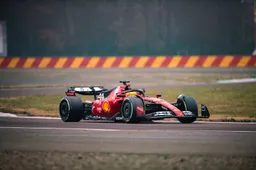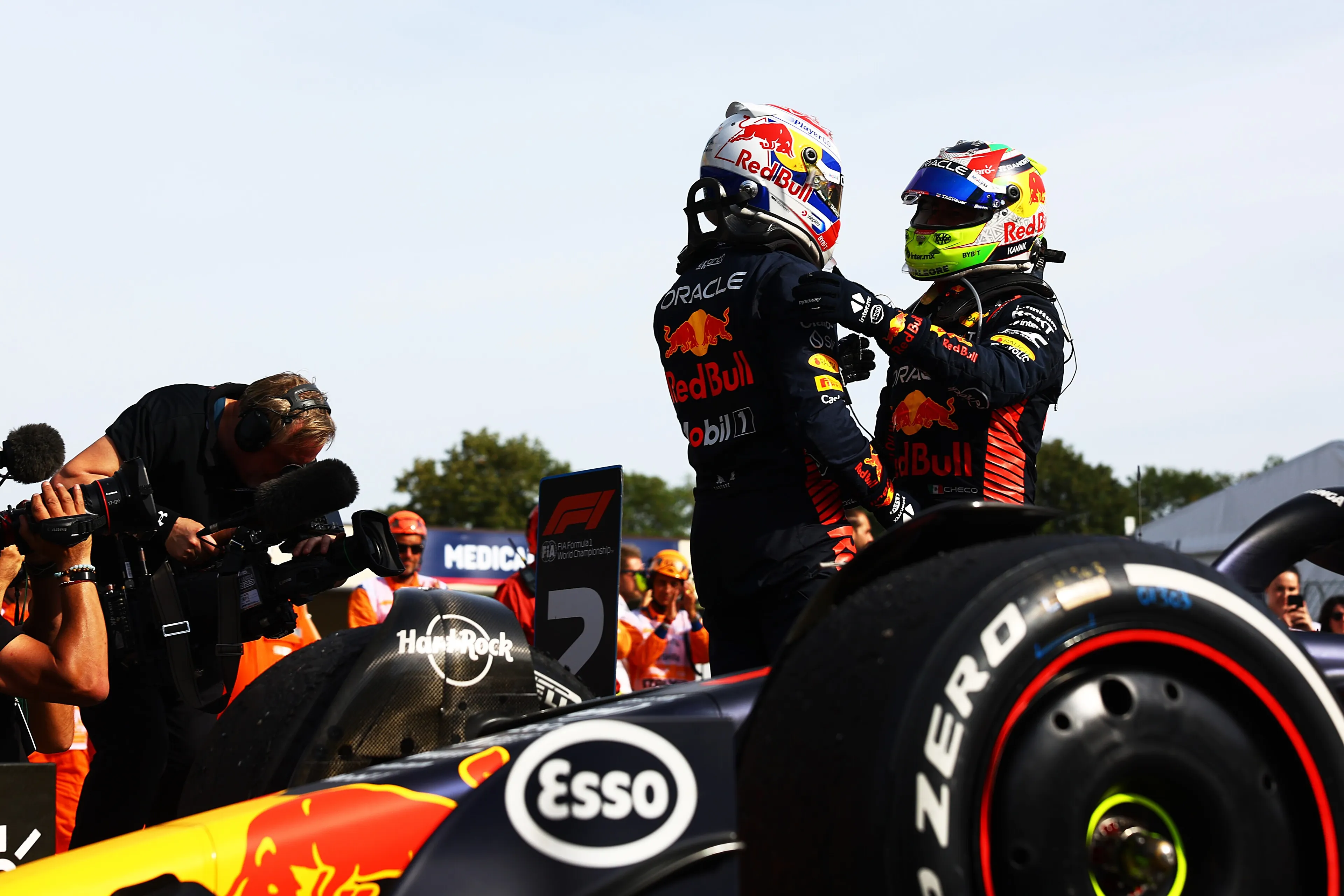How Can Verstappen Elevate His Record-Breaking 2023 Season To Unbeatable
F1Tuesday, 14 November 2023 at 13:00
Updated at Tuesday, 14 November 2023 at 15:33

Max Verstappen's 2023 F1 season is the most dominant season in the history of the sport, but the Red Bull driver can elevate it even further, to an unbeatable record.
Not many drivers managed to do what the Flying Dutchman did in 2023, and in fact, no one else managed to do it. He's been dominant from the very first race, and as of the Sao Paulo Grand Prix, he lost only three times.
In the first four races of the season, his teammate Sergio Perez came ahead of Verstappen twice. First, the Mexican driver won the 2023 Saudi Arabian Grand Prix, before also finishing first at the 2023 Azerbaijan Grand Prix.
What followed after that was utter dominance by the three-time World Champion, as he broke yet another record, winning ten consecutive races and therefore surpassing former Red Bull driver Sebastian Vettel.
His dominance was stopped at the 2023 Singapore Grand Prix, when Ferrari's Carlos Sainz stopped not just Verstappen's but also Red Bull's dominance in 2023, becoming the first driver from a different team to win a race.
But after that, the Dutch driver picked up where he left off, winning five consecutive races up until the 2023 Sao Paulo Grand Prix. By doing that, he has actually broken a few records.
Read also
One of them was the most race wins by a driver in a season, a record that he previously held. The Dutchman won his 16th Grand Prix in Mexico City, surpassing his previous record of 15 race wins.
Yet, immediately after the race, Verstappen said that he was focused on winning his 17th race, and he did it not long after that when he won the 2023 Sao Paulo Grand Prix at the Interlagos Circuit.
By doing so, the 26-year-old broke yet another record. This time, it was a 70-year-old record set by Alberto Ascari back in 1952, when the Italian driver won 75% of the races in that season (6 out of 8).
The record stood for a very long time, and the reason was quite simple and that's the fact that there were only eight races in the season, making it much easier to win the vast majority of them and record a high percentage of wins.
As Formula One expanded, the number of races in a season increased and in 1958, it was 11; only two decades later, in 1977, it was already 17, and by 2021, there were already 22 races in the calendar.
That, of course, makes it more difficult to win a high percentage of those, even with a dominant car, because the higher number of races increases the risk of a possible DNF, incident, or anything else that could see the given driver not win the race.
Read also
But Verstappen has avoided all of that in 2023 and broke this record, winning 17 of 22 races, which marks a 77,27% win rate. With two more races to go, the Dutch driver can improve this mark to 86,36%, something unheard of in recent years.
But how can this record become unbreakable? There are two ways. One of them is quite similar to how another Verstappen's record will never be broken.
The Dutch driver entered his first Formula One race when he was 17 years and 166 days old. Now, the minimum age to enter an F1 race is 18 years, and that means that this record will never be broken unless the rules are changed.
A similar concept can apply to Verstappen's records with race wins. When it comes to the number of races, there are only three ways F1 can go, and that's either up, middle or down.
If the number of races increases in the future, then the Dutchman's record of 17 Grand Prix wins can be beaten, but his record of the highest percentage of wins in a season will be safer, as it will be even harder to remain consistent over an even larger number of races.
On the other hand, if the number of races decreases in the future, then it may be impossible for anyone to win 17 races, given that the overall number of races can be lower than this number, meaning it would be impossible for anyone to surpass that mark.
If the number of races doesn't drastically change, then it will be simply almost impossible for anyone to have similarly dominant season as Verstappen has, just because of all the circumstances and how rare his feat is.
Read also
POPULAR NEWS

Steiner Warns Red Bull: 2024 Performance Masked By Verstappen's Brilliance

Sainz Sr. Grateful For Ferrari's 'Fantastic Gesture' After Driver Switch

Marko Issues Honest Verdict On Verstappen's Potential Exit: 'You Have To Be Realistic'

Racing Bulls CEO Reveals What Verstappen's Personality Is Like Outside F1 Paddock

Magnussen Discusses 'Crazy' Thing That Separates Verstappen From Hamilton And Others

Hamilton: Driving Ferrari F1 Car For First Time 'One Of Best Feelings Of My Life'
Loading


